Taiwan is one of Asia’s most prosperous and successful liberal democracies, the world’s leading innovator in and producer of semiconductors, and a trusted partner in critical supply chains. While Taiwan stands at the center of the global semiconductor economy, its lack of diplomatic recognition and formal alliances contributes to its existential vulnerability to being invaded or otherwise involuntarily absorbed into the People’s Republic of China (PRC).
This event brought together participants from the Hoover Institution to discuss these issues with Taiwan counterparts, and to consider the recommendations of a new Hoover Institution report entitled “Silicon Shield: US- Silicon Triangle: The United States, Taiwan, China, and Global Semiconductor Security.” The report is available for free download at the project website.
For more on this topic, see the Hoover Institution's Working Group on Semiconductors and the Security of the United States and Taiwan. Some of the report chapter authors have also participated in podcasts about the report, which you can listen to here:
Matt Turpin, on mitigating China's non-market behavior in semiconductors
Chris Ford, on how the United States can reduce vulnerabilities in semiconductor supply chains
Mary Kay Magistad, on the future of U.S.-China competition
Glenn Tiffert, on why China struggles to produce advanced semiconductors
In addition, in July 2023, the report's editors appeared in Washington DC for a launch event.
Terry Tsao is a seasoned executive and industry leader, currently serving as the Global Chief Marketing Officer and President of Taiwan at SEMI. In his current capacity, Terry Tsao assumes the responsibility of directing corporate marketing strategies of SEMI, encompassing various critical areas such as strategy formulation, association operations, product marketing, and market communications. Moreover, he leads the SEMI Market Intelligence Team, driving data-driven insights and actionable intelligence within the organization. In his leadership position for SEMI Taiwan, Tsao oversees all aspects of activity planning, product offerings, and service content. With over 16 years of experience at SEMI, Tsao has significantly advanced Taiwan's semiconductor community and spearheaded crucial policy initiatives within the global semiconductor industry. Prior to his current position, Tsao held dual roles as the President of SEMI Taiwan and the President of SEMI Southeast Asia, leveraging his extensive experience to drive advancements in the semiconductor industry across multiple regions.
Tain-Jy Chen is a senior professor of economics at TSE, and also a professor emeritus of National Taiwan University. In addition to teaching, he has previously served as the president of Chung-Hua Institution for Economic Research, a think tank specializing in economic policy studies, and also in the Taiwan government, as the minister for Council for Economic Planning and Development (CEPD) and National Development Council (NDC). This experience gives him wide exposures to policy formations and implementations. As an economist, his research interests are in economic development and trade policies. He earned a Ph.D. degree in economics in 1983 from Pennsylvania State University. He has published extensively in academic journals, mostly in the fields of trade, investment, and industrial development. His recent work focuses on industrial development of China and the US-China trade war.
Kuo-Chun Yeh is a professor at the Graduate Institute of National Development, a researcher at Center for China Studies, and Coordinator of China Research Program, National Taiwan University. He is Secretary-general of the Chinese Association of Political Science (CAPS Taipei). Since 2021 he has been an EU Jean Monnet Chair focusing on the EU-China industrial competition.
Burn-Jeng Lin is a Distinguished Senior Professor at National Tsing Hua University, a position he has held since retiring as Vice President of TSMC in 2016. He joined TSMC as a senior director in 2000 and became Vice President in 2011. Prior to that, he founded and led Linnovation, Inc. From 1970 to 1992, Dr. Lin worked at IBM, where he held various technical and managerial positions and was the first person to propose immersion lithography, a technique that eventually became viable in the 1980s. Dr. Lin is an IEEE Life Fellow and SPIE Fellow and was elected to the membership of the United States National Academy of Engineering in 2008 and as an Academician of Academia Sinica in 2014. He received a B.S. from National Taiwan University and his M.S. and Ph.D. in Electrical Engineering from Ohio State University.
FEATURING:
Larry Diamond - Senior Fellow at the Hoover Institution
James O. Ellis - Annenberg Distinguished Fellow at the Hoover Institution
Kharis Templeman - Research Fellow at the Hoover Institution
H.-S. Philip Wong - Willard R. and Inez Kerr Bell Professor in the School of Engineering at Stanford University
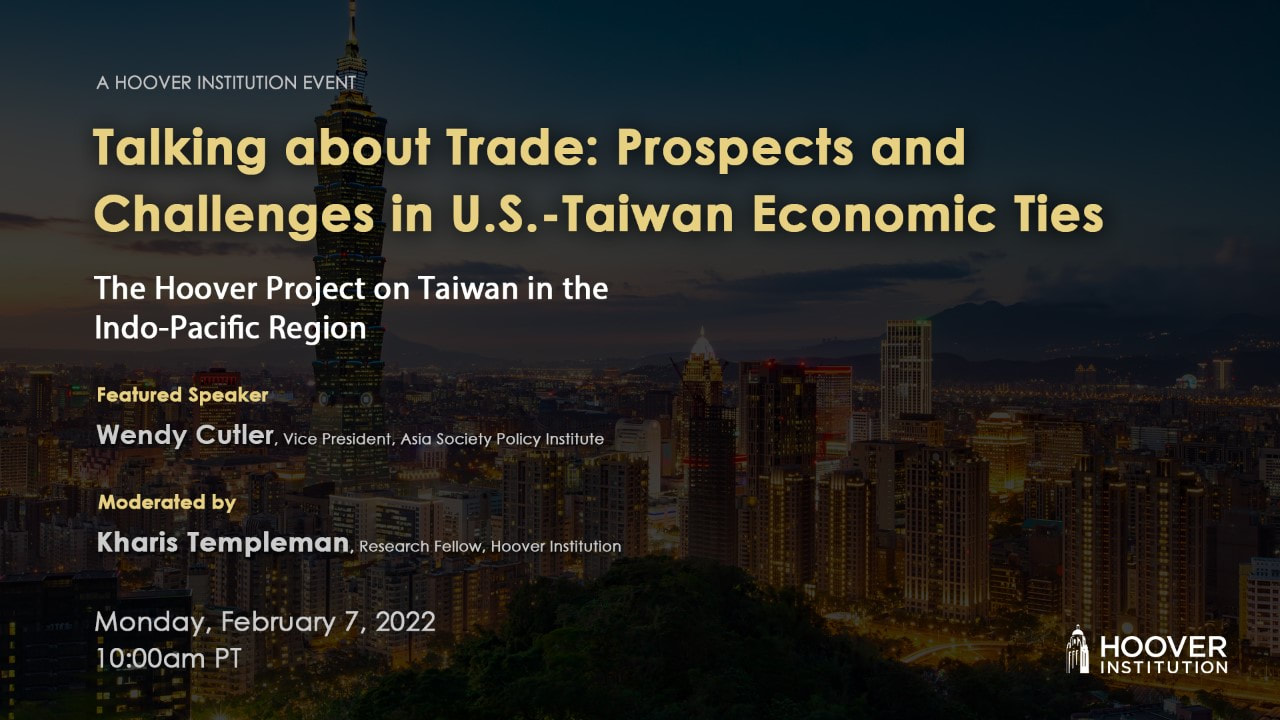

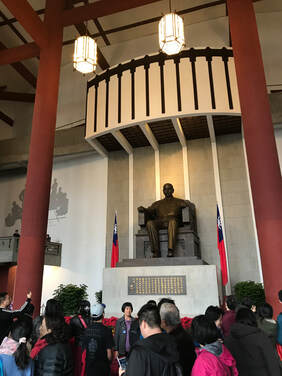
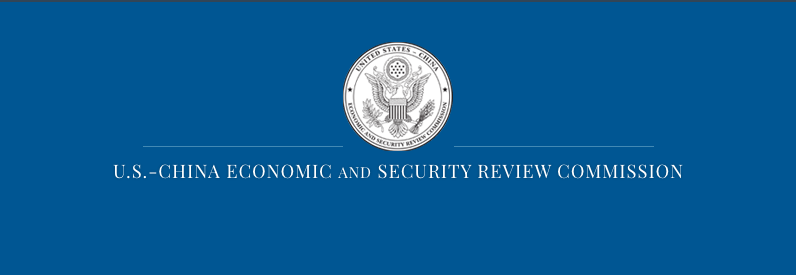
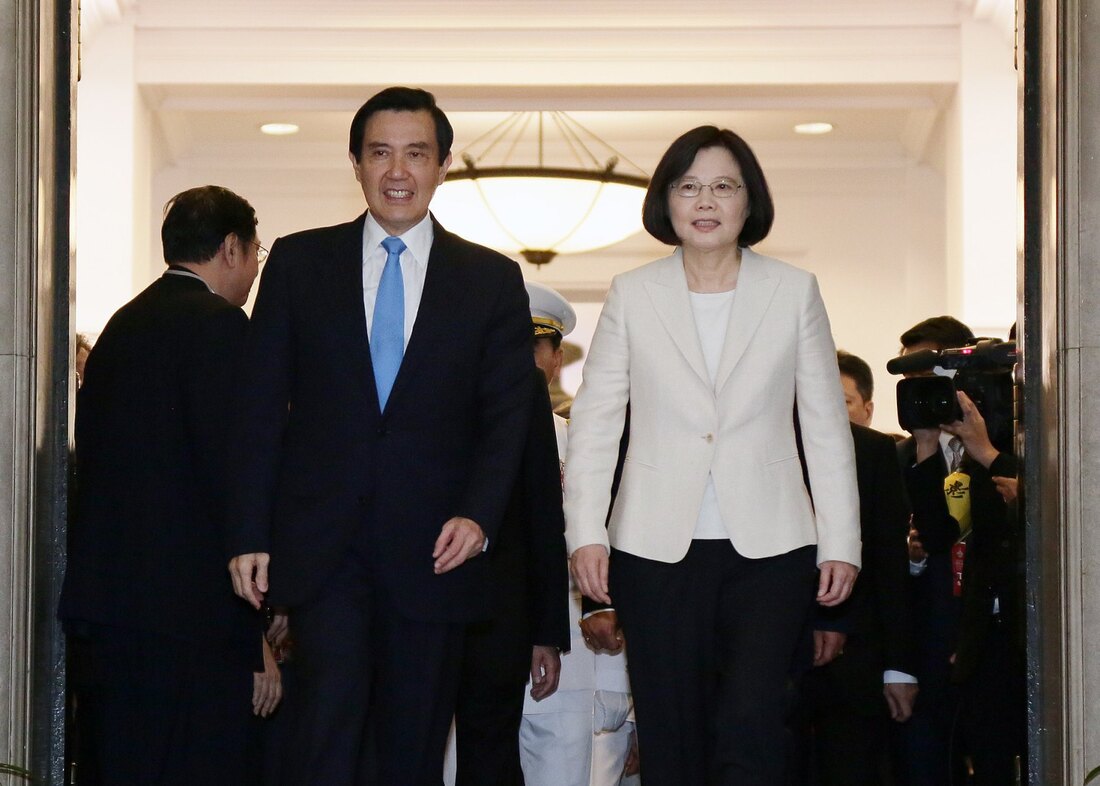
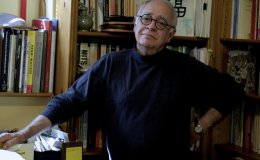
 RSS Feed
RSS Feed
